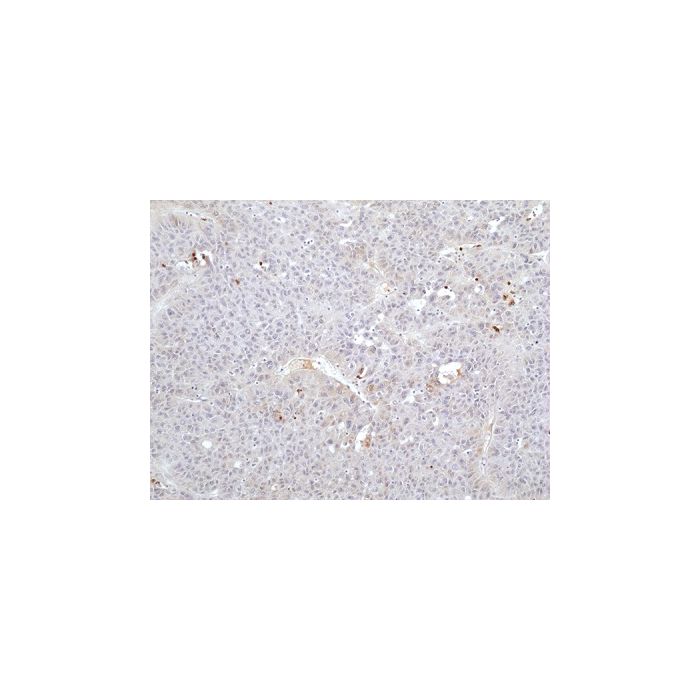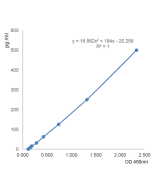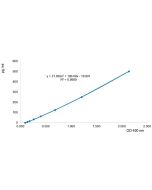Cookie Policy: This site uses cookies to improve your experience. You can find out more about our use of cookies in our Privacy Policy. By continuing to browse this site you agree to our use of cookies.
RevMab
anti-FGL1 (human), Rabbit Monoclonal (RM502)

| Product Details | |
|---|---|
| Synonyms | Fibrinogen-like Protein 1; FGL-1; Hepatocyte-derived Fibrinogen-related Protein 1; HFREP-1; Hepassocin |
| Product Type | Recombinant Antibody |
| Properties | |
| Clone | RM502 |
| Isotype | Rabbit IgG |
| Source/Host | Rabbit |
| Immunogen/Antigen | A peptide corresponding to the C-terminus of human FGL1. |
| Application |
Immunohistochemistry (IHC): 1:100-1:200 Western Blot: 1:1000-1:2500 |
| Crossreactivity | Human |
| Specificity |
This antibody reacts to human FGL1. |
| Purity | Protein A purified. |
| Purity Detail | Protein A affinity purified from an animal origin-free culture supernatant. |
| Concentration | N/A |
| Formulation | Liquid. 50% Glycerol/PBS with 1% BSA and 0.09% sodium azide. |
| Isotype Negative Control | |
| Other Product Data |
Click here for Original Manufacturer Product Datasheet |
| Accession Number | Q08830 |
| Declaration | Manufactured by RevMab Biosciences. |
| Shipping and Handling | |
| Shipping | BLUE ICE |
| Long Term Storage | -20°C |
| Handling Advice | Avoid freeze/thaw cycles. |
| Use/Stability | Stable for at least 1 year after receipt when stored at -20°C. |
| Documents | |
| Product Specification Sheet | |
| Datasheet |
 Download PDF Download PDF |
FGL1 (Fibrinogen-like protein 1, also called Hepatocyte-derived fibrinogen-related protein 1, HFREP-1 or Hepassocin) was initially identified as an overexpressed transcript in hepatocyte carcinoma and as a transcript enriched in regenerating liver. FGL1 is expressed at lower levels in brown and white adipose in the setting of liver injury. A low level expression of FGL1 is also observed in the pancreas. FGL1 is a 34kDa protein structurally similar to Angiopoietin-like factors 2, 3, 4 and 6, which regulate lipid metabolism and energy utilization. It was proposed that FGL1 is a member of an emerging group of proteins having potential roles in liver metabolism and liver regeneration. Recently, FGL1 has also been shown to be upregulated in human cancers and FGL1 is a major functional ligand of LAG-3. FGL1 interacts with LAG-3 in a MHC-II-independent manner and this interaction involves the FGL1 fibrinogen-like domain and the LAG-3 D1-D2 domain. FGL1-LAG-3 interaction blockade promotes tumor immunity by stimulating T cell expansion and activation. FGL1 forms two disulfide-linked homodimers and also higher molecular weight homooligomers that bind to LAG-3 much better than the dimeric forms. This binding to LAG-3 inhibits T cell responses. FGL1 is highly produced by human cancer cells, and elevated FGL1 in the plasma of cancer patients is associated with a poor prognosis and resistance to anti-PD-1/ B7-H1 therapy.








